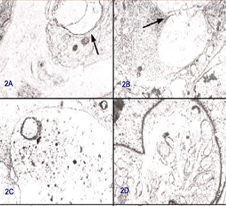Overview
Giant Cell Arteritis (Sometimes Called Temporal Arteritis) Is A Condition Which Can Seriously Affect Sight. It Is A Condition That Affects The Arteries Of The Body, In Particular The Artery That Brings Blood To The Optic Nerve. This Can Cause A Lack Of Blood To The Optic Nerve Which Can Lead To A Sudden Loss Of Vision. This Information Explains Giant Cell Arteritis And Some Of The Treatments Available.
Temporal Arteritis, Also Known As Giant Cell Arteritis, Is An Inflammatory Condition That Affects The Medium-Sized Blood Vessels That Supply The Head, Eyes, And Optic Nerves. Patients With Temporal Arteritis Experience Swelling And Tenderness In The Blood Vessel Of The Temple And Scalp. The Disease Is Most Common In People Over Age 60 And Affects Women About Four Times More Than It Affects Men.
If Allowed To Progress, Temporal Arteritis Can Be Sight Threatening. Vision Loss Occurs When The Inflamed Arteries Obstruct Blood Flow To The Eyes And Optic Nerves. Temporal Arteritis May Also Start To Affect Arteries In Other Areas Of The Body. Prompt Treatment Of This Condition Is Essential To Prevent Permanent Vision Loss And Other Health Problems.

Signs And Symptoms
Patients With Temporal Arteritis Usually Notice Visual Symptoms In One Eye At First, But Many Notice Symptoms In The Fellow Eye Within Days If The Condition Is Untreated. The Following Are Some Of The Most Common Warning Signs Of The Condition:- Headache
- Tenderness Of Scalp (Combing Hair May Be Painful)
- Pain In Temple Area (May Be Excruciating)
- Transient Blurred Vision
- Loss Of Appetite
- Fever
- Fatigue
- Depression
- Drooping Lid
- Double Vision
- Sore Neck
- Jaw Soreness, Especially When Chewing Food
Causes Of Giant Cell Arteritis
At The Moment The Exact Cause Of The Disease Is Unknown.It Usually Only Affects People Over The Age Of 55 And Is Most Common In People Over 75. Giant Cell Arteritis Seems To Affect More Women Than Men.
Giant Cell Arteritis Is Sometimes Related To Other Problems. Most Commonly Polymylagia Rhuematica, This Is A Condition Which Causes Pain In The Shoulders And Hip Joints. Polymylagia Rhuematica Is Also Associated With Problems Of Blood Supply. Often People With Polymylagia Rhuematica Go On To Develop Giant Cell Arteritis. However, Giant Cell Arteritis Can Often Occur On Its Own Without Any Other Medical Conditions.
Detection And Diagnosis
When Temporal Arteritis Is Suspected, The Doctor Will Order Blood Tests Including A Erythrocyte (Red Blood Cell) Sedimentation Rate (ESR) And C-Reactive Protein Test. The ESR Test Measures The Time It Takes For The Erythrocytes To Collect In The Bottom Of A Test Tube. The Sediment Layer Of Erythrocytes Is Measured In Millimeters And Recorded. An Abnormally High ESR Is Indicative Of Active Inflammation.C-Reactive Protein Is Produced In The Liver. This Protein Is Released When The Body Responds To An Injury Or Any Other Event That Signals Inflammation. C-Reactive Protein Is Measured With A Blood Test.
A Biopsy Of The Temporal Artery Is Usually Recommended. The Procedure Is Performed With Local Anesthesia. A Small Section Of The Temporal Artery Is Removed And Examined Under Magnification For Inflammatory Cells. This Test Allows Doctors To Definitively Diagnose Temporal Arteritis.
Treatment
The Ophthalmologist Often Works In Conjunction With The Patient's Internist To Treat This Disease. The Primary Treatment For The Disease Is Oral Steroid Medication To Reduce The Inflammatory Process. Most Patients Notice An Improvement In Their Symptoms Within Several Days. In Some Cases, A Long-Term Maintenance Dosage Of The Steroid Is Required.For more information, medical assessment and medical quote
as email attachment to
Email : - info@wecareindia.com
Contact Center Tel. (+91) 9029304141 (10 am. To 8 pm. IST)
(Only for international patients seeking treatment in India)










